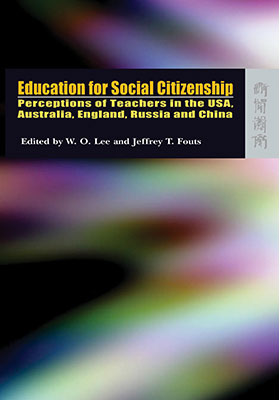Education for Social Citizenship
Perceptions of Teachers in the USA, Australia, England, Russia and China
(教育與社會公民:美國、澳洲、英國、俄羅斯與中國)
ISBN : 978-962-209-728-5
March 2005
304 pages, 6″ x 9″
- HK$250.00
Ebooks
Also Available on
Citizenship education calls for the education of knowledge, skills and values that help the young to become informed and responsible citizens. Various cross-national studies have been carried out since the 1990s and most of these projects focus on the policy-making processes, students and the curriculum. There has been little coverage on teachers—obviously one of the key figures in citizenship education. This volume, emerging from a cross-national study of teachers’ perception of good citizenship, aims to fill this significant gap. The chapters here ask two fundamental questions: What do teachers see as important in citizenship education? How do these perceptions facilitate or hinder the preparation of good citizens? While providing rich and useful data on the latest developments of citizenship education in various contexts, this book also offers an all-round review of concepts and arguments on the subject, as well as insightful comparative analyses of the findings emerged from the case studies. One encouraging conclusion drawn from these studies is that teachers across nations share similar goals and objectives that seem to have transcended cultural and political boundaries.
This book will appeal to all those who are interested in citizenship education, and will specifically be of interest to policymakers, curriculum developers, education scholars and researchers, social workers, and teachers.
“This book comes at an opportune time, when many societies around the globe are trying to find ways to educate for citizenship in a more convincing manner. This is an important book for all interested in educating for citizenship.” —John J. Cogan, Professor of Comparative Education, University of Minnesota
“What is a good citizen? Surprisingly, despite the boom of international comparative studies on citizenship education in the past decade, this fundamental question was not asked from teachers. This book fills this gap, and provides a thought-provoking analysis of teachers’ beliefs in the USA, UK, Australia, Russia and China.” —Gita Steiner-Khamsi, Professor of Comparative and International Education, Teachers College, Columbia University
“This book brings a much needed perspective to citizenship education: the centrality of teachers to the educational process. Across five distinctive national jurisdictions, the authors demonstrate that no matter how sophisticated or monolithic policies are, their main test is how they are filtered through teachers’ lenses into the classroom. This balance of policy, theory and classroom practice adds considerably to the literature on citizenship education and provides much needed lessons for academics, policymakers and teachers.” —Kerry J. Kennedy, Professor and Head of the Department of Curriculum and Instruction, The Hong Kong Institute of Education



